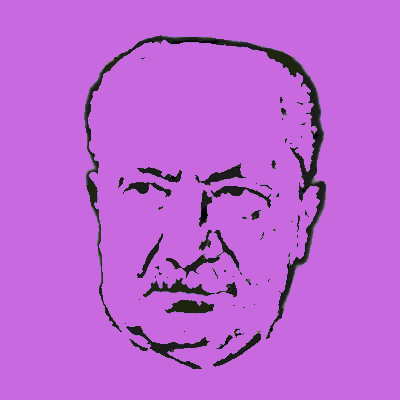El método fenomenológico en los Seminarios de Zollikon de Martin Heidegger
Contenido principal del artículo
Resumen
En este trabajo, centrado en los Seminarios de Zollikon de Martin Heidegger, abordo la ambigua y compleja relación entre Heidegger, Husserl y la fenomenología, mediada por la problemática del método fenomenológico. La tesis que pretendo mostrar es que, a pesar de la postura explícita de Heidegger, en la que se muestra crítico con su maestro, Heidegger estaría asumiendo, implícitamente, tanto el método como la fenomenología de Husserl, la cual es puesta en práctica en estos Seminarios. Para mostrar esta tesis, analizo dos nociones fundamentales de la fenomenología de Husserl, en las que Heidegger basa toda su argumentación: cuerpo (Körper) y cuerpo vivido (Leib).
Descargas
Detalles del artículo

Esta obra está bajo una licencia internacional Creative Commons Atribución-NoComercial-SinDerivadas 4.0.
Los autores mantienen la Propiedad de los Derechos de Autor y Derechos de Reproducción.
Los autores/as pueden realizar otros acuerdos contractuales independientes y adicionales para la distribución no exclusiva de la versión del artículo publicado en esta revista (p. ej., incluirlo en un repositorio institucional o publicarlo en un libro) siempre que indiquen claramente que el trabajo se publicó por primera vez en esta revista.
Se permite y recomienda a los autores/as a publicar su trabajo en Internet (por ejemplo en páginas institucionales o personales) posterior al proceso de revisión y publicación, ya que puede conducir a intercambios productivos y a una mayor y más rápida difusión del trabajo publicado.
Citas
Cerezo, P.: “De la existencia ética a la ética originaria”, en: Duque, F. (ed.), Heidegger o la voz de los tiempos sombríos, Serbal, Barcelona, 1991, pp. 11-79.
Gadamer, H-G.: El movimiento fenomenológico, Síntesis, Madrid, 2016.
Heidegger, M.: Conceptos fundamentales de la fenomenología, Trotta, Madrid, 2000. Traducción de Juan José García Norro.
Heidegger, M.:El ser y el tiempo, FCE, México, 2007. Traducción de José Gaos.
Heidegger, M.: Prolegómenos para una historia del concepto de tiempo, Alianza, Madrid, 2006. Traducción de Jaime Aspiunza Elguezabal.
Heidegger, M.: Seminarios de Zollikon, Herder, México, 2013. Traducción de Ángel Xolocotzi Yánez.
Husserl, E.: Problemas fundamentales de la fenomenología, Alianza, Madrid, 1973. Traducción de Javier San Martín y César Moreno.
Husserl, E.: Ideas relativas a una fenomenología pura y una filosofía fenomenológica. Libro Segundo: Investigaciones fenomenológicas sobre la constitución, FCE, México, 1997. Traducción de Antonio Zirión.
Husserl, E.: Renovación del hombre y de la cultura. Cinco ensayos, Anthropos, Madrid, 2012. Traducción de Agustín Serrano de Haro.
Husserl, E.: Manuscrito B II 19 (Aus Vorlesung 1912 über Reduktion), inédito.
Nietzsche, F.: La voluntad de poder, EDAF, Madrid, 1981, p. 240. Traducción de Aníbal Froufe.
Ortega y Gasset, J.: ¿Qué es filosofía? (1929), en: Obras completas, Tomo VII, Madrid, Alianza Editorial/ Revista de Occidente, 1983.
Rodríguez, R. (coord.): Ser y tiempo de Heidegger. Un comentario fenomenológico, Trottta, Madrid, 2015.
Rodríguez, R: Heidegger y la crisis de la Época moderna, Síntesis, Madrid, 1994.
San Martín, J.: La estructura del método fenomenológico, UNED, Madrid, 1986.
San Martín, J.:La nueva imagen de Husserl. Lecciones de Guanajuato, Trotta, Madrid, 2015.
San Martín, J.: “La vida radical como conciencia trascendental”, en Revista de Humanidades 28, Universidad Andrés Bello, julio-diciembre 2013, Santiago de Chile, pp. 229-247.
Welton, D.: The new Husserl. A Critical Reader, Indiana University Press, 2003.

